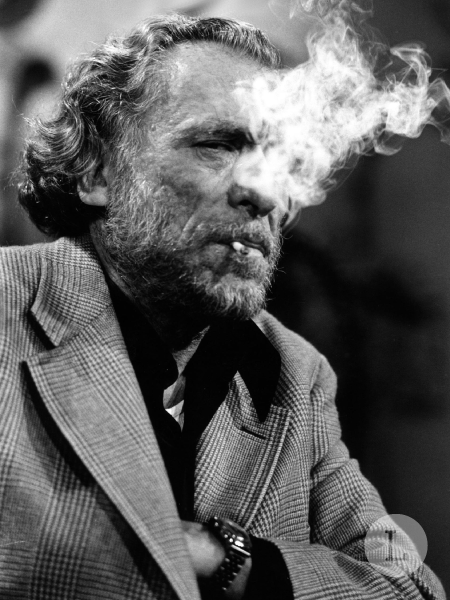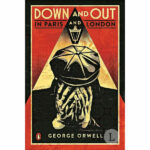Post Office by Charles Bukowski is a novel that tells the story of Henry Chinaski, a fictionalized version of the author himself, as he struggles to make a living working dead-end jobs and trying to make a name for himself as a writer. The novel follows Chinaski as he takes a job at the post office, where he is forced to deal with the monotony and bureaucracy of the job, as well as the eccentric and often hostile people he works with. Through Chinaski’s experiences, the novel explores themes of alienation and the search for meaning in a meaningless world.
BOOK INFO
version: CLASSIC, EBOOK, AUDIOBOOK
number of pages: 160
literary movement: COUNTERCULTURE
literary genre: SEMI-AUTOBIOGRAPHY
time period: post WW II
1st edition: 1971
years of writing: late 1960s
SUMMARY
One of the main themes of the novel is alienation. The novel portrays Chinaski’s experiences at the post office as a symbol of the monotony and alienation that is present in the modern world. Chinaski is portrayed as a man who is disconnected from society, and is unable to find meaning or purpose in his life. This is shown through his struggles with the bureaucracy and hostility of the post office, which reflect the struggles of the individual against the system. The novel also shows Chinaski’s alienation in his relationships, as he is unable to connect with the people around him, and is often left feeling lonely and isolated.
Another important theme in the novel is the search for meaning. The novel shows Chinaski’s search for meaning in his life, as he tries to make a living as a writer, and his search for identity and purpose. Chinaski is portrayed as a man who is searching for something more in his life, and is constantly trying to find a way to escape the monotony and alienation that surrounds him. The novel shows how Chinaski’s search for meaning and purpose is an ongoing struggle, and that he is often left feeling unfulfilled and dissatisfied.
The novel also addresses the theme of poverty and the struggle to make ends meet. Chinaski is portrayed as a man who is struggling to survive on his low wages at the post office, and is often forced to live in poverty. This theme is closely related to the theme of alienation, as Chinaski’s struggles with poverty and financial insecurity add to his feelings of disconnection and isolation from society. The novel also explores the theme of the American Dream, and how it is often unattainable for those living in poverty.
The book also comments on the societal expectations placed on men and masculinity. Chinaski’s struggles to make a living and support himself are portrayed as a failure to live up to societal expectations of masculinity and the traditional role of the provider. This theme is closely related to the theme of the search for meaning, as Chinaski’s struggles with societal expectations add to his feelings of unfulfillment and dissatisfaction with his life.
The novel also touches on the theme of the counterculture of the 1960s and 1970s, and the voice of the disillusioned and disenchanted. Bukowski’s writing is often associated with the counterculture movement, which rejected traditional values and institutions and sought alternative ways of living and thinking. The novel reflects the disillusionment and disenchantment of this movement, and Chinaski’s struggles and search for meaning can be seen as a reflection of the struggles and search for meaning of this generation.
MAIN CHARACTERS
Henry Chinaski
A fictionalized version of the author himself. Chinaski is portrayed as a man who is struggling to make a living working dead-end jobs and trying to make a name for himself as a writer.
Jan
A co-worker of Chinaski at the post office, who is described as being eccentric and often hostile.
Betty
Chinaski’s love interest, who is a beautiful and mysterious woman.
Chinaskiˈs Boss
Known as the supervisor, who is described as being a strict and unfeeling bureaucrat.
Chinaskiˈs Co-Workers
At the post office, who are portrayed as being a diverse group of people with different personalities and backgrounds.
Chinaskiˈs Friends
Who are writers and artists who provide him with companionship and support.
Chinaskiˈs Landlady
Who is a tough and demanding woman.
Chinaskiˈs Father
Who is described as being a difficult and abusive man.
These characters, along with many others, play important roles in the book and help to shape Chinaski’s experiences and the themes of the novel.
I wasn’t much of a petty thief. I wanted the whole world or nothing.
CHARLES BUKOWSKI
TOP 10 POINTS
- The main theme of Post Office is the struggle to find meaning and purpose in a meaningless and monotonous world, as seen through the experiences of the main character, Henry Chinaski, as he works at the post office.
- The novel explores the theme of alienation and the individual’s search for identity and purpose, as Chinaski struggles with the monotony and bureaucracy of his job and the eccentric and hostile people he works with.
- The book is characterized by its raw, unvarnished, and often brutal honesty, which is evident in its darkly humorous and often cynical look at life, and is considered one of Bukowski’s most powerful and memorable works, and a classic of modern literature.
- The novel also addresses the theme of poverty and the struggle to make ends meet, as Chinaski struggles to survive on his low wages at the post office and his attempts to make a living as a writer.
- The book provides a realistic and gritty portrayal of the working-class life, as well as the struggles of the individual against the system
- The novel’s writing style is characterized by its raw, unvarnished, and often brutal honesty, which is evident in its darkly humorous and often cynical look at life.
- The book is considered a semi-autobiographical novel, many of the events and characters are based on the author’s own experiences.
- The book is considered as a representation of the counterculture of the 1960s and 1970s, and a voice of the disillusioned and disenchanted.
- The novel also addresses the theme of masculinity and the societal expectations placed on men, as Chinaski’s struggles with work, relationships, and society.
- Through the character of Chinaski, the book presents a commentary on the American Dream and the difficulties of achieving it, as Chinaski’s struggles to make a living and find purpose in life.
In conclusion, Post Office is a powerful and memorable novel that explores themes of alienation, the search for meaning in a meaningless world, poverty, societal expectations, and the counterculture movement. The novel’s raw, unvarnished and often brutal honesty style reflects the voice of the disillusioned and disenchanted, and is considered one of Bukowski’s most powerful and memorable works and a classic of modern literature.
Additionally, the novel also explores the theme of the human condition, depicting the struggles and challenges that are inherent to the human experience. The novel portrays the characters not just as individuals but as representatives of humanity, and their struggles are relatable to the struggles of the readers. The novel also explores the theme of survival, and how the characters, especially Chinaski, have to find ways to survive in a harsh and often hostile world.
The novel’s style is also worth mentioning, it is written in a simple, direct, and unadorned manner, which reflects the gritty realism of the story and the characters. Bukowski’s writing is known for its raw, unvarnished, and often brutal honesty, and this style is evident in Post Office as well. The book is also known for its darkly humorous and often cynical look at life, which adds depth and complexity to the story and the characters.
Furthermore, the novel’s setting, the post office, is also worth discussing as it serves as a metaphor for the larger society. The post office represents the bureaucratic, monotonous, and oppressive nature of the society. Chinaski’s experiences at the post office reflect the struggles of the individual against the system, and the novel uses the setting to comment on the larger societal issues.
ABOUT WRITER

Charles Bukowski was a German-American poet, novelist, and short story writer who is considered one of the most important and influential writers of the 20th century. He was born in Andernach, Germany on August 16, 1920, and immigrated to the United States with his family when he was two years old. The family settled in Los Angeles, where Bukowski grew up and spent most of his life.



